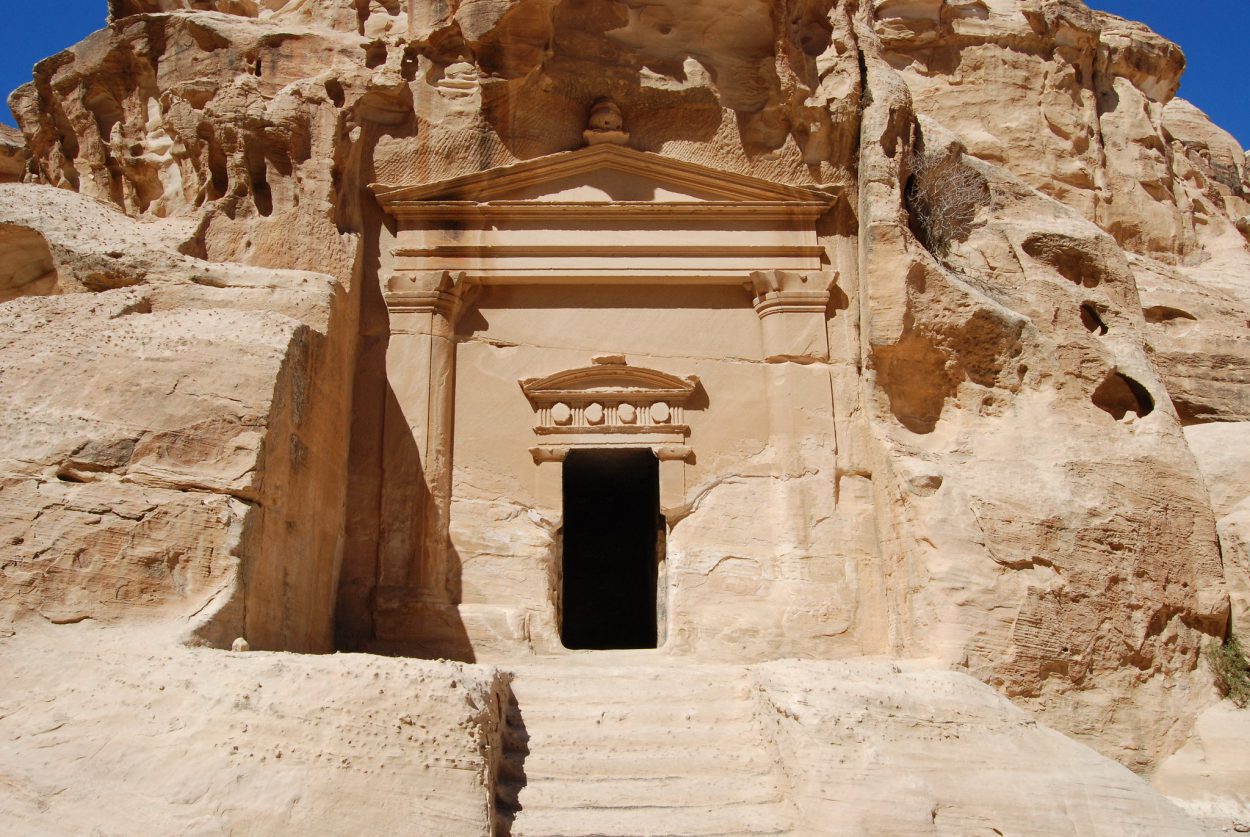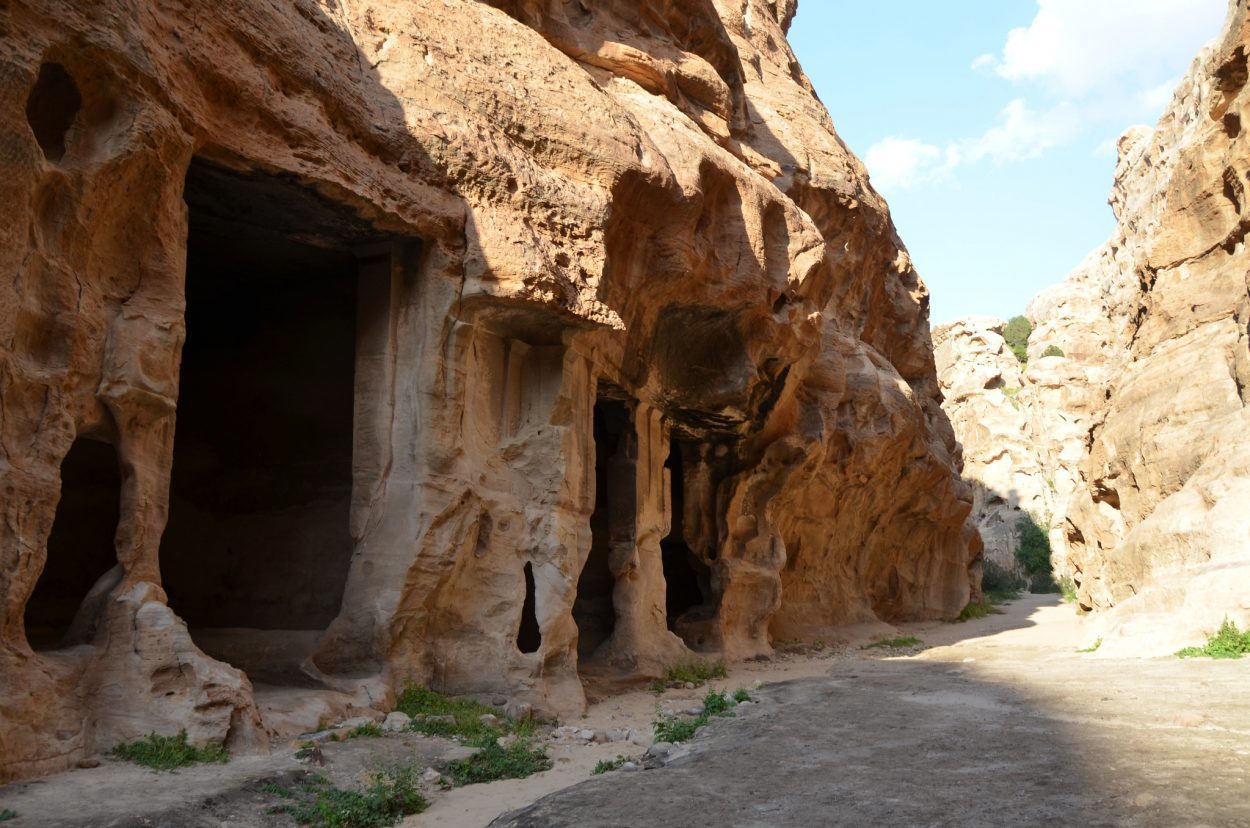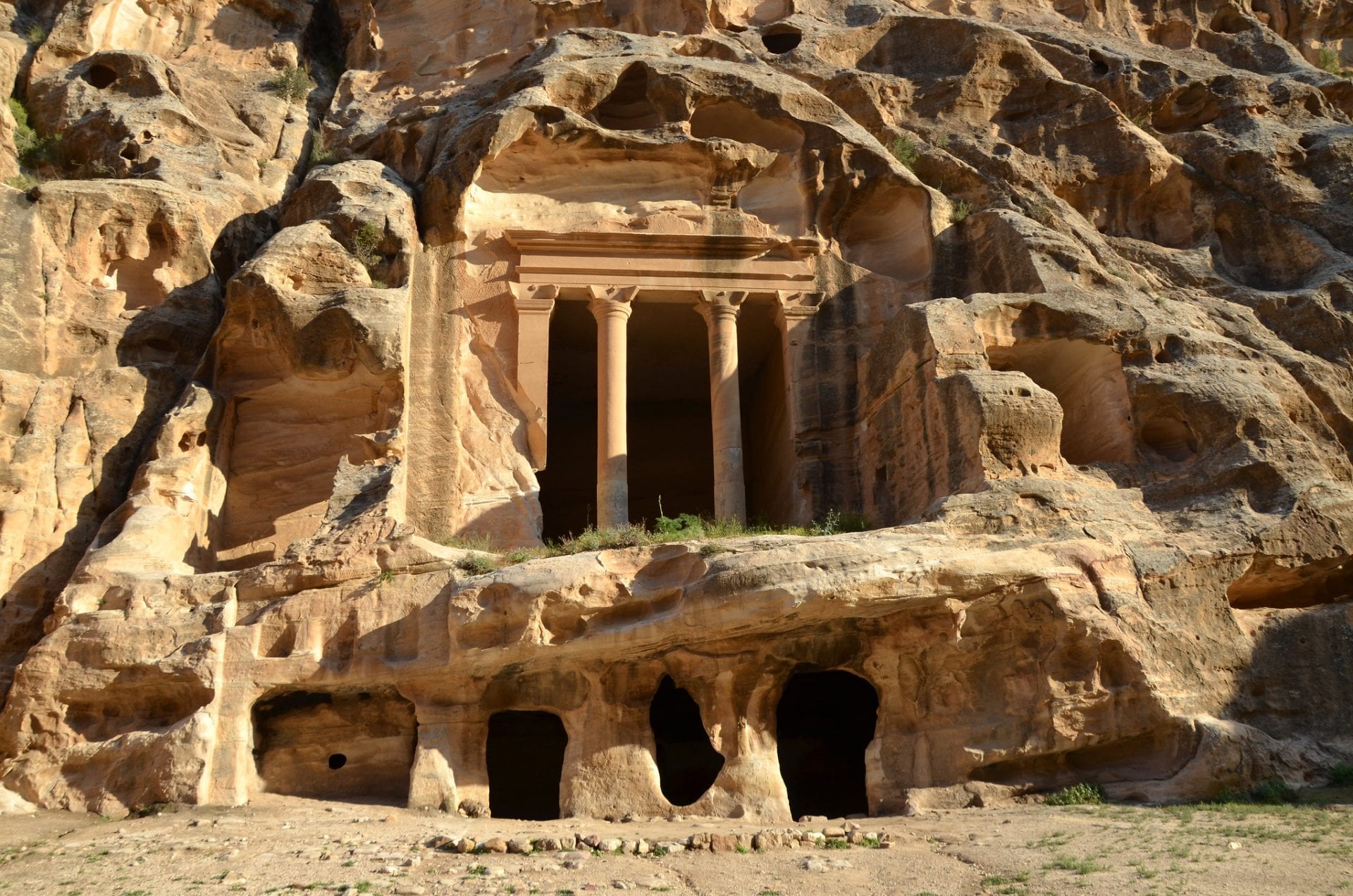Siq al-Barid, also called ‘Little Petra’ is a Nabataean site in the Ma’an Governorate of Jordan that features rock cut tombs, stone-built architecture, and a complex system of hydrological engineering.
Siq al-Barid was founded by the Nabataeans (also called Nabateans), a nomadic Bedouin tribe from the Arabian Desert who moved their herds across the desert in search of pastures and water.
The Nabataeans emerged as a distinct civilisation and political entity between the 4th and 2nd century BC, centred on the city of Petra which developed into a major trading hub reaching as far as China, Egypt, Greece, and India.
The kingdom became a client state of the Roman Republic in the first century BC and was annexed into the province of Arabia Petraea by the Roman Empire in AD 106.

Archaeologists propose that Siq al-Barid was founded in the 1st century BC, serving as a suburb of the nearby Petra city complex 6km to the south.
Located in a 450-metre wadi, Siq al-Barid was accessed via a narrow rock cut passageway on the eastern entrance, whilst a staircase on the western side led to a secluded mountain pass.
Within the wadi is a series of tombs, temples, cisterns, and banqueting halls (tricliniums) cut into the natural sandstone walls, suggesting that the site served as a resort for entertaining merchants and traders on their stopover in Petra.

Siq al-Barid has some of the only surviving Nabataean paintings, such as the Painted rock-cut Biclinium which depicts faux architectural elements reminiscent of some Pompeian wall paintings, and scenes of intertwining vines, flowers, figures, birds, and insects.
Several erotes (winged gods associated with love and the cultivation of wine) are also depicted that participate in viticulture management, using ladders and pruning hooks, carrying baskets of gathered grapes that lends weight to the attribution of the space as a centre of Dionysiac worship.
With the decline of the Nabataeans, Petra and Siq al-Barid were largely abandoned around the 8th century AD.
Header Image Credit : Carole Raddato – CC BY-SA 2.0





